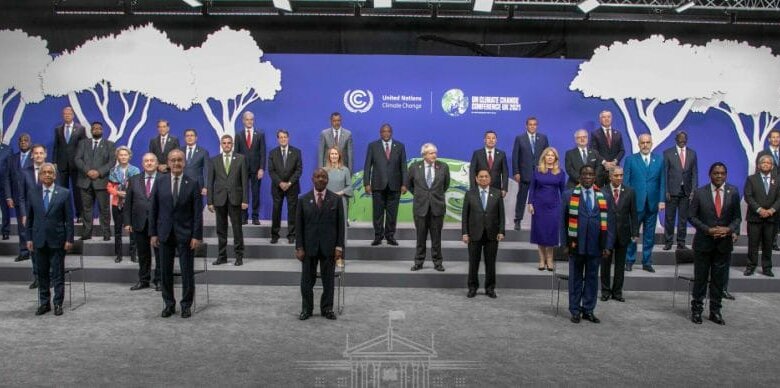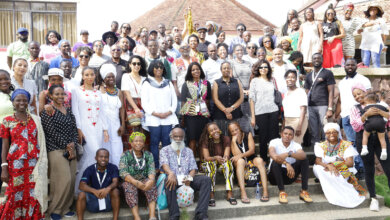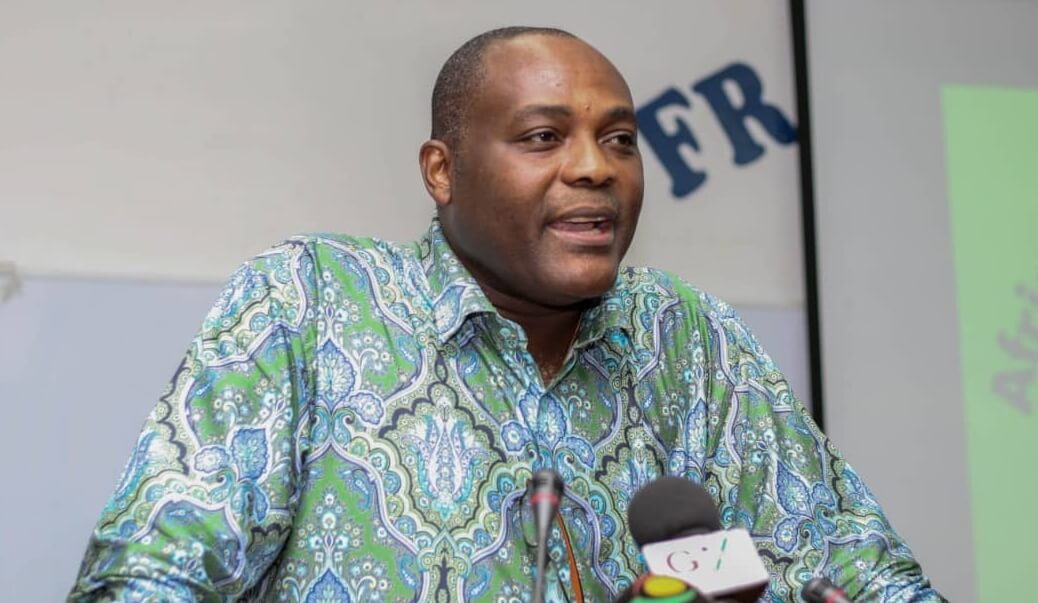Why Centering Climate Panic Around Africa is Wrong – Hear from Experts

Originally published on Foreign Policy, Todd Moss & Vijaya Ramachandran faulted a general conception by rich countries that Africa is or will be a threat to the planet’s climate.
As climate pledges pile up, a worrying theme is emerging, that bold efforts by rich nations to decarbonize the global economy will be ruined by multitude of new consumers in the developing world buying cars, installing air conditioning, and taking planes. China’s and India’s rapid development and steep emission trajectories (should) have been central to these fears, but Western governments and climate activists have found little problem there.
Instead, the focus of attention has now shifted to Africa, where energy use is still very low—and where rich countries see an opportunity to apply pressure by leveraging development aid and cutting off finance. This is already leading to harmful policies that will hurt millions of poor Africans by slowing down their continent’s economic development while doing little, if anything, to help fight climate change.
Fears of a fossil fuel boom in low-income but fast-growing regions such as Africa are cited as the rationale for imposing new bans on financing for such investments. At this year’s U.N. Climate Change Conference, or COP26, the United States, Britain, and other countries pledged to end international financing of fossil fuel projects.
The key word here is “international.” While barring public finance for oil and gas projects in other countries, Britain continues to sponsor its own fossil industry, while the United States—already the world’s biggest oil producer—plans to increase its own domestic production.
But even if we ignore Western hypocrisy and take their promises of rapid carbon reduction at face value, is there any rational reason to worry about African nations blowing up the world’s carbon budget? A closer look suggests NO.
CENTERING CLIMATE PANIC AROUND AFRICA
On climate change, as on so many other issues, many in the West seem to see Africans as a mass of passive victims lacking agency and requiring charity—the quintessential “white man’s burden”—or a looming threat to civilization. To save the planet, this thinking goes, Africans can’t enjoy a high-energy future that people in rich countries take for granted. The climate just can’t afford Africans to be prosperous.
Blaming Africa takes several classic forms:
One form is to rattle off big scary numbers without background or context. Bill McKibben—one of the world’s most prominent climate activists—recently declared that the world can’t fight climate change if it doesn’t stop Uganda from building an oil pipeline, citing the project’s planned transport of 210,000 barrels per day, which sounds like a lot. McKibben never mentions that Uganda is one of the world’s poorest countries, that its people suffer from severe energy shortages, that it emitted a mere 0.01 percent of global carbon dioxide last year, and that the pipeline’s capacity will be equivalent to only 0.014 percent of crude oil output in the United States, where McKibben is based.
Another form of activist fearmongering about Africa is to brandish frightful but improbable scenarios. In a recent report from the Wilson Center with the headline “The Battle for Earth’s Climate Will Be Fought in Africa” the author precisely wrote that Africa’s energy needs must be considered in future energy planning. But then he speculates wildly: If, in 2060, every African were to emit at the same level as Indians or Egyptians today, it would wipe out many of the gains from reductions elsewhere. But is such a scenario even plausible? Almost certainly, no.
Africa is starting from such a low-energy base that even rapid increases in oil and gas use could not possibly have much global impact.
We calculate that if the 1 billion people living in sub-Saharan Africa tripled electricity consumption using natural gas—the most widely available fossil fuel in Africa—the additional emissions would equal just 0.62 percent of global carbon dioxide today. And of course, no country is remotely planning an all-fossil fuel future. As in most emissions projections, the scenario makes worst-case assumptions and ignores future changes in technology.
IS AFRICA EVEN THE PROBLEM HERE?
No region has contributed less to carbon emissions than sub-Saharan Africa.
South Africa, with an industrial sector powered by coal, is responsible for 1.3 percent of global historical greenhouse emissions and a similar percentage of current ones. The other 48 countries of sub-Saharan Africa combined, home to only 13 percent of the global population, have contributed just 0.55 percent of cumulative global emissions. They collectively added just 1 percent in 2020. These negligible numbers are driven, in large part, by extremely low energy use.
The average African consumes less electricity per year than an American family’s refrigerator.
Sub-Saharan Africa—including South Africa—has just 123 GW of installed power generation capacity. That’s less than Canada, which only has one-thirtieth as many people.
While banning financing for gas projects is deadly for development and hampers the buildout of renewables, it’s highly useful in Western countries as a political tactic. Reducing carbon in a developed economy is politically costly and fraught with risks. It is virtually free to cut off public financing for foreign countries, especially small and poor nations in Africa. It requires no messy legislative debate. Arguing that the problem is elsewhere allows rich countries to make big splashy announcements while pushing off the difficult choices at home.
CLIMATE POLICY – THE GREEN COLONIALISM
With every decision to cut off financing and condition development aid, Africans increasingly view climate policy as green colonialism.
American, French, British, and Italian firms don’t need development aid and are investing in African gas for export to Europe or Asia. But if Senegal and Mozambique want to build pipelines and power plants to use their gas at home in order to raise living standards, Western governments refuse to help. This is rightly seen in many African capitals as just the latest round of extractive exploitation.
Worse, this policy is climate redlining. Bans on financing for gas only apply to poor countries that rely on development finance for infrastructure. Rich countries face no such constraints. The very definition of environmental racism is when a policy has a disproportionate impact on communities of color. What else to call a rule that almost exclusively affects Africans?
The reality is that the global carbon problem is still very much caused by the rich countries plus China.
Africa’s economic and energy ambitions are not going to ruin the West’s climate plans. Cutting off financing for gas to the world’s poorest nations is unfair and inhumane. Justifying such policies based on irrational and factually incorrect fears of Africa’s carbon future is wrong. Western climate policy must stop blaming the victims.
Written by Todd Moss, the executive director of the Energy for Growth Hub, and Vijaya Ramachandran, the director for energy and development at the Breakthrough Institute.
Abeeb Lekan Sodiq is a Managing Editor & Writer at theafricandream.net. He is as well a Graphics Designer and also known as Arakunrin Lekan.





